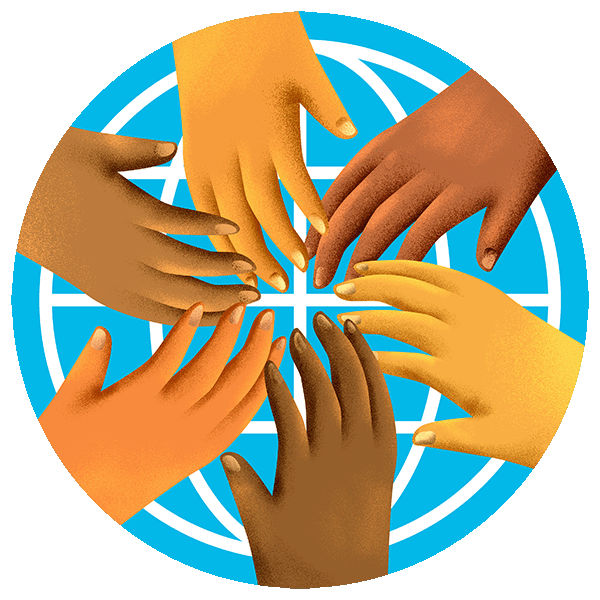
International Day For People Of African Descent 2023
International Day for People of African Descent commemorates the extraordinary culture and diversity of people from the motherland and also pays homage to the sacrifices made by Africans with regard to the development of our societies through history. In this radio program,we honor freedom fighters and slave rebellion leaders Louis van Mauritius and Abraham van der Kaap.
The Impact Of Gold Mining On The Indigenous Peoples Of The Philipines
Indigenous peoples in Itogon, Benguet province, in the Cordillera region of the Philippines, have been struggling against large-scale corporate mining that endangers their ancestral lands, resources, and ways of life for more than a century. Even today, they continue to wait for social justice. The Benguet Corporation, earlier known as Benguet Consolidated Inc— one of the oldest top-producing gold mining companies founded in 1903 initiated the first underground gold mining operations in Antamok in 1907. The corporation expanded its operation to Acupan and Balatok in 1927.
Threats To Indigenous Journalists Must End!
Democracy and justice cannot exist without freedom of expression and freedom of the press. Today, by and large, the mainstream media is owned and controlled by socially and economically powerful people, resulting in a lack of access, voice, and participation of Indigenous Peoples. On the auspicious day of World's Press Freedom Day, Indigenous broadcasters call attention to the right of Indigenous Media, Article 16 of the UN Declaration on the Rights of Indigenous Peoples (UNDRIP).
Freedom Of The Press Is The Foundation Of Justice
Press freedom is of major concern to Indigenous journalists. They are seeking this freedom so that they can report freely in their communities and their local and national governments. When Indigenous Peoples are facing injustices, it is Indigenous media and journalists who are at the frontlines to tell their stories, but many Indigenous journalists are facing obstacles with regard to free press in their communities. On this World Press Freedom Day, Francine Compton, Associate Director of the Native American Journalists Association speaks to Cultural Survival.
UNPFII - Indigenous Women Must Be Elevated - Binalakshmi Nepram
The first meeting of the Permanent Forum was held in May 2002, with yearly sessions thereafter. The Forum usually meets for 10 days each year, at the UN Headquarters in New York. According to the ECOSOC resolution E/2000/22, the Forum may also meet at the UN Office in Geneva or at such other place that it decides.
Cultural Survival attended the permanent forum in April 2023 and spoke to some of the delegates who attended.
Produced by Dev Kumar Sunuwar (Sunuwar)
Interviewee: Binalakshmi Nepram (Meitei)
Image: Cultural Survival
UNPFII - Indigenous Women Are Marginalized Globally - Margaret Lokawa
The United Nations Permanent Forum on Indigenous Issues (UNPFII) is a high- level advisory body to the Economic and Social Council. The Forum was established on 28 July 2000 by resolution 2000/22, with the mandate to deal with indigenous issues related to economic and social development, culture, the environment, education, health and human rights.
Cultural Survival attended the permanent forum in April 2023, and spoke to some of the delegates who attended.
Produced by Dev Kumar Sunuwar (Sunuwar)
Interviewee: Margaret Lokawa (Karimjong)
Image: Cultural Survival
UNPFII - Stop Evicting Us From Our Customary Lands -Daniel Kobei
The first meeting of the Permanent Forum was held in May 2002, with yearly sessions thereafter. The Forum usually meets for 10 days each year, at the UN Headquarters in New York. According to the ECOSOC resolution E/2000/22, the Forum may also meet at the UN Office in Geneva or at such other place that it decides.
Cultural Survival attended the permanent forum in April 2023, and spoke to some of the delegates who attended.
Produced by Dev Kumar Sunuwar (Sunuwar)
Interviewee: Daniel Kobei(Ogiek)
Image: Cultural Survival
UNPFII - Indigenous Knowledge Needs To Be Preserved - Nathan Phillips
The theme of the twenty-second session of the UNPFII will be “Indigenous Peoples, human health, planetary and territorial health and climate change: a rights-based approach”.
Cultural Survival attended the conference, and spoke to some of the delegates who attended.
Produced by Dev Kumar Sunuwar (Sunuwar)
Interviewee: Nathan Phillip(Omaha)
Image: Cultural Survival
Music "Remember Your Children", by Salidummay, used with permission.
"Burn your village to the ground", by The Halluci Nation, used with permission
UNPFII - Languages Are Preserved By Growing New Speakers - Holly Helton
In line with the International Decade on Indigenous Languages, the Indigenous Media Zone, a special platform set up for Indigenous Journalists, will aim to encourage the participation of Indigenous media practitioners in a wide variety of Indigenous languages from different regions.
Cultural Survival spoke to Holly Helton.
Produced by Dev Kumar Sunuwar (Sunuwar)
Interviewee: Holly Helton(Anishinaabe)
Image: Cultural Survival
Music "Remember Your Children", by Salidummay, used with permission.
UNPFII - The Climate Crisis Affects Indigenous Women Differently Naw Ei Ei Min
The first meeting of the Permanent Forum was held in May 2002, with yearly sessions thereafter. The Forum usually meets for 10 days each year, at the UN Headquarters in New York. According to the ECOSOC resolution E/2000/22, the Forum may also meet at the UN Office in Geneva or at such other place that it decides.
Cultural Survival attended the permanent forum in April 2023, and spoke to some of the delegates who attended.
Produced by Dev Kumar Sunuwar (Sunuwar)
Interviewee: Naw Ei Ei Min
Image: Cultural Survival
